Bad Boys: Dark, Dangerous, Disturbing… and Delicious
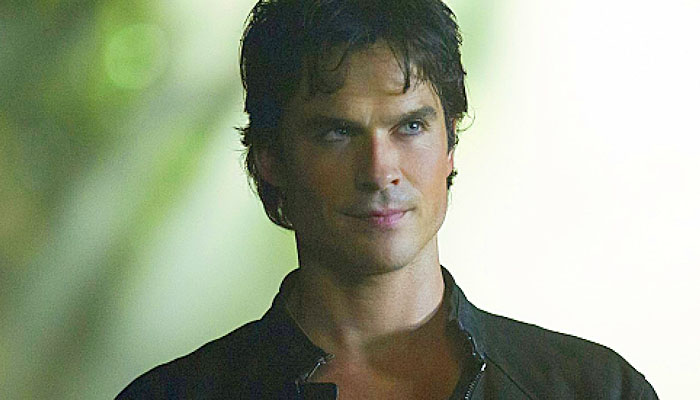
Have you ever rewatched a series or picked up a YA novel you read when you were younger and asked yourself, why did I like that character so much? He was such a jerk! On subsequent viewings of the Vampire Diaries, Damon proves to be such a character. Despite #metoo and strides in feminism, our culture can’t stop craving the Bad Boy. But why? And what are we teaching young female audiences about men, masculinity, and romance?

The “Bad Boy” is a common trope in movies, TV shows, and books geared towards younger audiences and in particular, towards teenage girls. The Bad Boy is tall, dark, and handsome. He’s a rake. A rogue. He sometimes even resembles a “Byronic” hero: mysterious, selfish, and tortured. 1 But above all, he’s a jerk. Yet somehow, he’s still an icon of masculinity. Scholars Ahir Gopaldas and Susanna Molander have explored the commercial appeal of the Bad Boy, and found that the Bad Boy is “a combination of juvenile masculinities (aggression, rebellion, hypersexuality), appealing qualities (charisma, ruggedness, sensitivity), and moral ambiguities (confusion, contradiction, cumulation).” 2
This formula hooks viewers and makes the Bad Boy intriguing. The moral ambiguities likely keep us guessing, and the appealing qualities make us want to forget the bad. Isn’t there danger though in selling young female audiences an attractive male lead who embodies the negative traits of masculinity? Portraying an ideal masculine man as aggressive, rebellious, and hypersexual is a perilous message. We don’t need perfect male characters, but we need to highlight the positives of masculinity instead of accentuating its darker sides.
Another dynamic to the Bad Boy is that he’s often juxtaposed to the “Good Guy.” Despite the Good Guy deserving the girl and treating her like a queen, the female protagonist always goes for the Bad Boy. Why? Is there truth to the insulting statement that “nice guys finish last?”
The Notebook
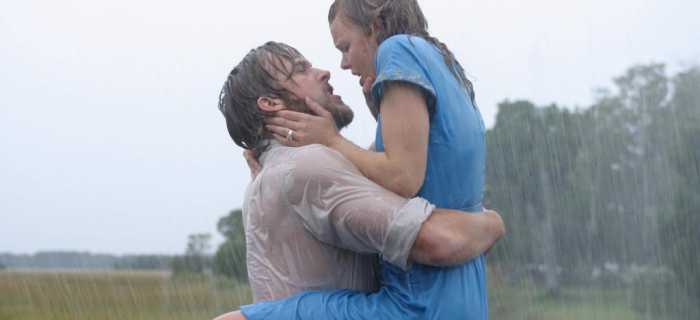
Let’s look at multiple versions of the Bad Boy to examine this question. Some Bad Boys have a little more darkness than others, but they always get the girl. For example, Noah in The Notebook is a devoted, loving husband to Allie, but their love story begins with him threatening to fall off a Ferris Wheel if Allie doesn’t accept a date with him. Does that sound like a pleasant way to ask someone out? He’s wild and intense, and the audience loves him for that, but his behavior is not exactly appropriate at times. For example, he and Allie aren’t afraid to raise their voices at each other.
On the other hand, there’s Lon, Noah’s competition for Allie’s hand. Lon is a refined gentleman, who we see treats her very well. He’s polite, respectable, and never seems to get angry. Noah and Allie’s relationship is depicted as more unstable, more fights. In Hollywood’s scripts, that’s the typical recipe for passion and romance: a little bit of jerk, a lot of attraction, and some bickering and arguing that is proof of passion. So, Noah isn’t the typical Bad Boy we’d think of, but he fits the bill by being just disagreeable enough to Allie to add a little intrigue. The question is, what are we teaching our young female audiences? Why do we tell them to go for the Bad Boy, the one who does dangerous things to get their attention? Or why is arguing and yelling synonymous with passion?
Hardin from After

A more extreme example of the Bad Boy is Hardin, from Netflix’s After. Hardin has some Byronic qualities, being depicted as mysterious and tortured with family issues. He is known to not have steady girlfriends, and he pursues the female protagonist, Tessa, because of a dare. He falls in love with her, but never tells Tessa that their relationship started as a game for him. (Another girl tells Tessa the truth). He also displays a fit of jealousy and rage in the film. Letting anger rule you seems to be a common trope of the Bad Boy masculinity. That anger often gets forgiven or is depicted as making the Bad Boy more of a man, which is an extremely problematic message to send to audiences. As viewers, we should push back against romanticized portrayals of aggression. We also should question Hardin’s integrity, whether he would have ever told Tessa the truth, but instead we can’t help but secretly root for them. How can we fight the allure of the Bad Boy when the movies somehow make all of their negative qualities seem so sexy? When anger, for example, is depicted as a natural part of an attractive, masculine man, what are we teaching our girls?
Often, Bad Boys are part of juicy love triangle, in which the female protagonist declares them the winner. Let’s look at a couple of examples and what they further reveal about the prominence of the Bad Boy trope in our modern culture.
Damon vs. Stefan Salvatore
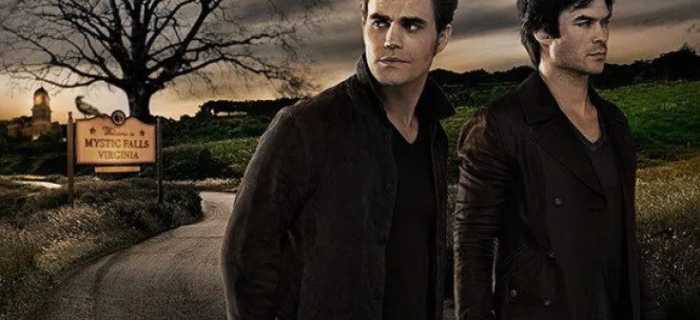
Who doesn’t love a sexy vampire? For Elena, the female protagonist of the Vampire Diaries, she can have Damon or Stefan (or a little bit of both). The Salvatores are smoking hot vampire brothers. Damon is the Bad Boy, the villainous older brother. He’s selfish, sarcastic, and violent. He pushes people away and struggles to live up to Elena’s expectations. Stefan, on the other hand, is the Good Guy. He’s the vampire that doesn’t drink human blood (although he has a dark Ripper side). While both brothers would die for Elena, Damon is wild and unpredictable, whereas Stefan is steady, level-headed, and always respects Elena’s choices. So, reading this, you probably think Stefan sounds like the better guy for her, right? But in the end, Elena chooses Damon. The devil-may-care attitude, playboy tendencies, and brutish behavior of Damon gets elevated above Stefan’s kindness, rational behavior, and respectful actions. Why is it so hard not to get caught in Damon’s web? Why is the media repeatedly telling us that the Bad Guy is the better option?
The Duke vs. The Prince
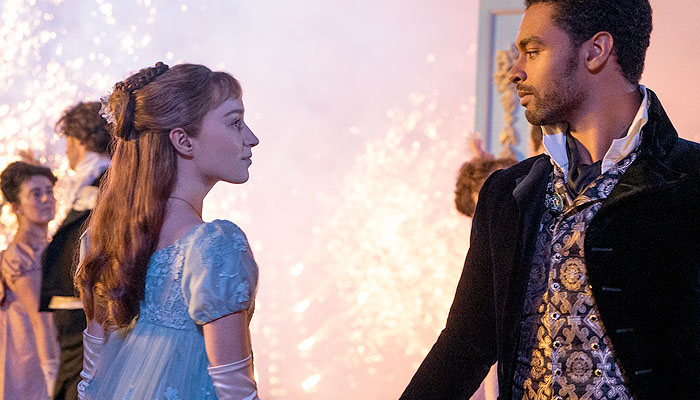
In Bridgerton, the extremely popular Netflix period piece, Daphne Bridgerton is a debutante in need of a husband. She and the rakish Duke pretend to court one another to meet their own objectives, but they end up falling in love. At one point, the Duke breaks things off with Daphne, and a Prussian prince begins to court her. The Duke is the Bad Boy, and the Prince is the Good Guy. The Duke is jaded, has family trauma, and has sworn he will never marry and sire an heir. He’s a bit of a jerk when he first meets Daphne, but treats her well after they become friends. However, when things get serious, he coldly shuts her out. Conversely, the Prince is a stereotypical prince: he’s charming, kind, and treats Daphne with respect. He offers her physical and emotional stability. But Daphne is too enamored with the Duke and his bulging biceps. Their bond was built on friendship, but we watch as Daphne gets swept up in her physical attraction and ultimately gets deceived by the Duke. Similar to The Notebook, Daphne and the Duke’s bickering and fights add the necessary spice to the romance. The Good Guy gets associated with kindness and gentleness, and the Bad Boy with passion and danger. The movies seem to posit that the Good Guy is kind, but he’s boring, so embrace the darkness of the Bad Boy and get lost in it. What kind of message is that to young women?
Of course, the media is creating more complex characters today, and nothing is so one-dimensional. (Even Stefan has a dark side). However, the pattern of Bad Boys being chosen over Good Guys is alarming. The question then is, why is this happening? And second, what can we do about it?
Good Girls and the Appeal of the Bad Boy

Using a feminist and a sociological lens, let’s look at a couple of different theories. First, despite gains in feminism, there are societal expectations for young women to be “Good Girls.” Multiple scholars and writers have remarked on the harm of this “good girl” narrative. Folklore scholar Jameson Creech defines the “Good Girl” ideal as “the concept that women have to be good, submissive, loving, and motherly in order to accepted by society,” and it originated from “the Judeo-Christian perception of women as bad through Eve’s eating of the apple.” 3
The Good Girl is also expected to be more chaste than her male peers, and to be feminine in the traditional ways listed above despite our changing world of gender. She is agreeable, kind, and plays within the rules of the patriarchy. One negative result of this “Good Girl” narrative according to feminist writer Jessica Valenti is that a young woman’s value gets based completely upon her sexuality (if you aren’t chaste, you don’t have worth). 4 Creech adds another result for Western women in particular is lower self-esteem if they fail to meet these standards. 5
Certain social orientations can enhance the pressure to conform to the Good Girl script, such as religious or familial backgrounds. Within the Good Girl role, there is a lot of pressure to follow the rules, and sometimes, young women may yearn for a little more freedom, a little more excitement than what that narrow role offers. This is where romance comes in. As an arena that is traditionally and unapologetically feminine, young women are not just allowed, but encouraged to pursue romance and relationships. So within the culturally sanctioned sphere of romance, young women may seek a little reprieve from high moral expectations and have fun with a Bad Boy. She’s still following the path, but getting some excitement and danger in her life. That script of the Good Girl and Bad Boy is reflected on our screens. Often, there’s the deeply unrealistic side story of how the Good Girl manages to change the Bad Boy and tame his inner beast. That’s definitely not a helpful message to send young women.
A Sociological Theory of Modernity
A second sociological theory to consider is Weber’s theory of modernity. Max Weber was an early twentieth-century scholar who believed that society would try to find alternative sources of meaning after religion lost its universal hold. One of these alternative sources of meaning is what Weber calls the erotic, or romantic, sphere. 6 Applying Weber’s theory today, we see how our society is placing an increasing emphasis on the centrality of romance in our relationships and lives. Scholar Stephanie Coontz has researched the evolution of marriage and romance. Coontz explained that for centuries, marriage was about economics and politics. People married to create alliances and ties. However, today, in Western culture especially, people marry because they “fall in love.” 7
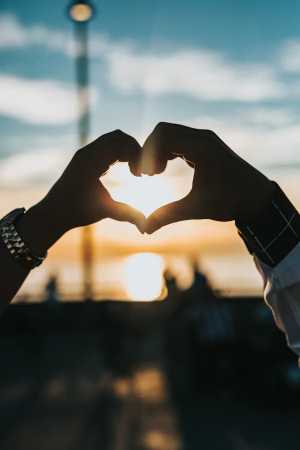
Romance is commercialized and valued in our lives. Weber would say that because we are no longer united by religion, we are trying to find ultimate meaning in the erotic sphere. Romance adds purpose in our impersonal, bureaucratized, 21st-century lives. But does it? Fairytale expectations fail, and people divorce. Many would argue that romance falls short of providing ultimate meaning in our lives. But maybe we as a society don’t see that or refuse to accept it, so we stubbornly continue to extol the virtues of the erotic sphere. Perhaps that’s why we emphasize the Bad Boy, because we want to send the message that romance is purposeful and fulfilling. We want to focus on the passion of the Bad Boy, so that we feel more alive.
We Can’t Help Ourselves
Gopaldas and Molander analyzed the appeal of the Bad Boy in pop culture and found that, yes, passion is part of the equation. They found that the Bad Boy trope is so widespread, because it’s “an inexhaustible source of dramatic tension” and a “beguiling object of irrational love.” 8 Irrational love is certainly a more passionate, exciting type of love. In a modern world that has lost its main source of meaning, it makes sense that we want to feel a sense of excitement from somewhere. Gopaldas and Molander concluded, “the bad boy archetype is a contemporary marketplace icon because it has historically been good at channeling all kinds of bad.” 9 And we like bad, because it’s invigorating and thrilling. It’s full of complexity and meaning.
The reality is that the Bad Boy exists, and we need to change the narrative. We need to create works that depict healthy patterns of love, and prove that passion doesn’t have to come from something dark and tortured. It can come from a place of friendship and respect. We need characters that are flawed, yes, but maybe we can scrap a couple of violent, angry scenes and replace them with images of caring men, men that hesitate before they raise their voices and that treat their woman like a queen.
Maybe the line between love and lust, arguing and adoring, and fighting and flirting will always be blurry, but we can advocate to make it a little less blurry for the young women in our lives. But at the end of the day, if we’re being honest, we want a little adventure. As Damon Salvatore told Elena Gilbert, “You want a love that consumes you. You want passion and adventure, and even a little danger.” 10 The Bad Boy haunts our screens because we want him to, and companies know this. The Bad Boy seduction will live on…so we better teach our girls to understand the difference between fact and fantasy.
Works Cited
- EmskitheNerd, “Bad Boys, Bad Boys: The Persistent Presence of the Byronic Hero,” The Artifice, 30 June, 2018. ↩
- Ahir Gopaldas and Susanna Molander. “The Bad Boy Archetype as a Morally Ambiguous Complex of Juvenile Masculinities: The Conceptual Anatomy of a Marketplace Icon,” Consumption Markets and Culture, 23:1, 81-93, 2020. DOI: 10.1080/10253866.2019.1568998 ↩
- Jameson Creech, “The Folkloric Image of the Good Girl and Its Effects on Women in the Age of the Internet,” Master’s Thesis, East Carolina University. Retrieved from the Scholarship. July 2019. http://handle.net/10342/7486. ↩
- Jessica Valenti, The Purity Myth: How America’s Obsession with Virginity is Hurting Young Women. Cambridge Scholars Publishing, February 2010. ↩
- Creech, “The Folkloric Image of the Good Girl.” ↩
- Swartz, D. L. “Max Weber’s Theory of Modernity: The Endless Pursuit of Meaning. Contemporary Sociology, 46(2), 221-223. 2017. https://doi.org/10.1177/0094306117692573mm ↩
- Stephanie Coontz, “The Radical Idea of Marrying for Love,” The Sun, September 2016, https://www.thesunmagazine.org/issues/489/the-radical-idea-of-marrying-for-love. ↩
- Gopaldas and Molander. “The Bad Boy Archetype.” ↩
- Gopaldas and Molander. ↩
- “Damon Salvatore, Quotes, Quotable Quote.” Goodreads, https://www.goodreads.com/quotes/11581561-you-want-a-love-that-consumes-you-you-want-passion. ↩
What do you think? Leave a comment.











It was a pleasure to edit this, and I love seeing the revisions that were made! Good article, and it’s great to see it on the site! Good job!
Thank you, Siothrún!
Of course! Looking forward to your next one!
One of my favourite bad guys, Simon Adebisi in Oz.
The early seasons of Vampire Diaries were great but once Elena and Katherine left it was a drag.
Plus the other side storyline sort of ruined it because it meant death and therefore the drama from the deaths had little meaning.
I also think the originals story was too much too soon. Viewers of these shows like them because they buy in to the mythology and history. By setting up the originals story while it’s a slam dunk you effectively end the vampire story arc and the witches, werewolves etc arcs are never as strong.
That said these stories are all about the relationships. Had Elena stayed it may have gotten good again. Buffy survived because Angel left but Spike replaced him. No one could replace Elena. The guys watching liked her and the girls watching wouldn’t forgive Damon if they introduced someone new.
The first three seasons were stellar television, culminating with the season three finale where Elena chooses to become a vampire to save her ex-boyfriend from dying.
It mainly worked due to non-stop plot development (which could never be sustained,) and subverting of character expectations. Some of the characters who were initially presented as truly awful & shallow people became the moral center of the show.
My wife got hooked on this for a few seasons, and I watched much more than I cared to. It is cheap, and verging on telenovela territory. Well ok that’s unfair, but in the direction thereof.
Enjoyable? Depending on the viewer, sure. Quality? No, truly not.
Damon, Klaus, and Hayley are the loves of my life. But it all started with Damon Salvatore.
I love him so much, always will.
Hayley is my girl crush also – that amazing hair/face/body/style and her interactions with Klaus are absolute perfection
I finally found someone who feels the same. Yes Damon, Klaus and Hayley are the loves of my life.
I feel like bad boys are to girls what cool girl is to guys. For example, arrogancy is only attractive if a guy’s features are attractive just like cool girl’s somewhat “manly” behavior is attractive as long as she is extremely good looking.
Just like every guy likes the idea of the cool girl, most girls like the idea of the bad boy, but that’s the thing- they’re both ideas and don’t actually exist
I never considered those two archetypes to be two sides of the same coin.
After! Definition of toxic relationship. Honestly, Tessa deserves better.
While Tessa and Hardin don’t have the healthiest of relationships, I hope that Josephine and Hero will be able to have long careers, since they’re talented in other projects.
Not the healtiest? 😀 That’s a huge understatement!
I feel like Damon is often misunderstood… people think he’s selfish and evil but that’s because they don’t realize or don’t understand his struggles, yes, he made mistakes but which character didn’t make mistakes?yes he often didn’t care about people but that’s not because he was evil or bad, thats because he thought just like Katherine… “it’s your life or theirs” and he made those mistakes to survive and cope with the pain to live as a vampire, to keep going since his own brother made him turn when he didn’t want to. He is one of the most selfless characters in TVD, he always protected those he loved all the time, always protected his friends, the women he loved and his family aka Stefan not matter at what extent he had to go through to save them, even if he was hated he still tried to protect those that he cares for.
He also went through a lot of pain, being a second option when i came to the girls he loved, always looking like the bad guy for his decisions when he always had a reason. He deserved his happy ending.
Damon’s character showed a streak of emotion and personal growth but stephans character regressed he was always going to yo-yo between being good a ripper. He wasn’t going to get better than he was. You could feel the chemistry between Damon and Elaines first love scene. That didn’t look fake.
Damon Salvatore is one of the greatest tv characters of all time, his story is about tragedy, pain, anger, love & most importantly redemption. He didn’t change for Elena, he changed for himself. I truly believe that he loves Elena, but he needed to know how to be better for himself, & that’s exactly what he did. I hope years/decades from now, people can look back and reminisce TVD.
I always say that he did it for himself bc if it had been for anyone else he would’ve brought up every time he did something good but instead he just did good things and didn’t feel the need to look for praise. I believe Elena inspired him to let his humanity show bc she saw the good in him and showed him love/compassion when nobody else did but nobody could make him change if he didn’t want that for himself to begin with. He always had good in him, he just needed to believe it himself.
So to fully explain. Damon has always been a good person. But purposely suppresses his true self with an evil persona. Damon would also use this evil persona he created as a way to make the tough decisions that need to be made for the protection of those that he cares about, much like Klaus. Which is why he always falls off the wagon and welcomes hate whenever he makes a tough decision. Because it’s his only way to justify it and he’d just learned to embrace the hate.
And so it’s as you say, his love for Elena is what truly helped him learn to be selfish and stop acting evil to protect the people he cared about. Elena taught him to put his own desires first and it was his desire for love.
Damon hands down is my favorite character, Ian did a great job. I really miss this show and its characters!
I agree with you that Damon changed himself. If he were just all evil, Damon would not have fallen in love with Elena and care for all those people along the way.
I’d say it’s more a case of 99% of TV dramas being so unutterably awful that you just want someone to kill the main characters. That guy’s usually the villain.
Not TV, but I always preferred the Kurgan to the eponymous protagonist in the original Highlander film. He was deliciously nasty.
SPOILER FOR ‘OUTLANDER’
I am a fan of the series ‘Outlander’ on Amazon Prime and I loved evil villain ‘Black Jack’ as portrayed by Tobias Menzies. It’s not that I approved of him (ruthless rapist, sadist and all round nasty-pasty) but without him, our protagonists don’t have his adversarial ways to push up against. He was an ever-present danger, waiting around the corner to cause ructions. It made great telly and he was a terrific baddie.
Damon was in a internal fight every single day, trying to be a better man for his brother and the woman he loves, but dealing with the vampire, the evil, inside of him. Great development of his character.
Damon has made mistakes like everyone else, just because he doesn’t show pain doesn’t mean he’s strong. i love damon so much my favorite character.
Essentially being a bad boy, is the sub product of being a man. That means you’re willing to do what you want and what you need without anyone’s external input or opinions to dissuade you from your goal. Nothing anyone can say or do can swerve your purpose, dreams and aspirations. As a bad boy, you do and think in what you believe in and nobody can say or do anything about it. You stay true to what you believe in no matter if it’s good or bad.
Sometimes you need to be a lion, so you can be the lamb you are. – Chapelle
Tommy Shelby-Peaky Blinders!
Tommy’s not the villain though, he’s more of an anti-hero. It’s his show after all!
I think some fans have ignored what The Vampire Diaries is about. These vampires are heightened versions of their human selves, and as such, would make mistakes as humans do. Fall off the wagon, revert back to old habits, be tempted as people often are. And in making these mistakes, forgiveness is understandable and very much necessary. No vampire in this show is without fault. Not only because they’re part monster, but because humans are flawed, after all. I just watched this series for the first time last year, and I have to say… Damon is by far one of my favorite characters of all-time, and it’s mostly due to his character journey. He made the show worth watching for me.
Damon Salvatore stole a piece of my heart and never gave it back. He can keep my heart forever.
What men realise and women tend not to, is that being a bad boy is easier and requires less effort, especially in these times, than a man who actively tries to be the best version of himself. It is easier to show people no respect than it is to show respect. It is easier to be nasty to people than it is to be nice.
It can be argued that being rude all the time is what is really difficult because maintaining a constant hostile attitude also requires a lot of effort. In other words, this issue is relative and depends on the culture and values of the society to which one belongs, as well as personal factors.
I hate when movies like “The Kissing Booth” or “50 Shades” try to play off abusive behaviour as “romantic” or “charming”, when really it’s just controlling and damaging in the long term.
When I was a teenager I thought I was a sucker for a bad boy, turns out I’m just a sucker for a guy in a leather jacket who rides a motorcycle and maybe has a European accent.
I’ve realised I’m into emotionally unavailable.
Yep, same.
I’ve been thinking about this a lot, and I’ve come to the conclusion that most people don’t really like “bad boys” or other villainous characters purely because they are bad. In my experience, they tend to like and relate to them because of other things that correlate with their badness but are not in and of themselves moral deficiencies. For instance, in many stories, the hero comes from a happy home, with two loving parents, whilst the villain or “bad boy/girl” comes from a broken home. With there being so many broken homes nowadays, it’s not surprising that a substantial proportion of audience members would relate to the “bad boy” from a broken home and not a hero whose home life seems (to them) unrealistically perfect.
I’ve recently become a fan of the indie film Whiplash, which stands out as one of the few films where the “hero” is more interesting than the villain. The central character is a bad boy of a sort, minus the promiscuity (though even that is debatable), and he has a pretty dark past. The filmmakers could have easily set him up as one of the villains and a more pleasant and “uncomplicated” character as the hero if they had wanted to. I remember thinking how refreshing it was to see such a dark and interesting character in a leading role, and having him be the one to defeat the (much worse) villain, instead of just serving as a foil for a bland-but-likeable everyman.
Alfred Bester in Babylon 5, and Gul Dukat in Deep Space 9.
Both amazingly realised baddies, both have a genuine belief in what they’re doing is for the benefit of their own people, and both attractive and lovable.
Damon. From a pseudo villain to an an-ti hero. To a hero and later on he let his brother to be the hero again and he takes the place as the anti hero.
I’ve almost finished Gomorrah season 3 (one episode to go) and it’s a strange feeling rooting for the bad guys (that have committed deplorable acts) against other bad guys that are equally deplorable and yet I side against them because they’re not the ones I like and know better!
I’ve never quite understood the appeal of the “bad boy”. The last thing I would want is a tumultuous relationship that is filled with toxicity and instability. I’ve lived that in real life, so why would I want to see it on screen? That being said, a man wearing all black pretending he doesn’t care but only shows a soft spot for the one he loves is a wonderful trope that blends bad boy with a healthier alternative.
Also, on the note of Damon since I’m seeing him brought up a lot. Yes, he has a tragic backstory, but lets not forget that he non-consensually coerced Caroline to sleep with him, and he’s a lot older than Elena, despite being a vampire. It reads a lot like Edward from Twilight: unhealthy and borderline pedophilic considering their ages. Elena and Bella were in high school, which only adds to the weirdness. Vampire or not, the implications of their relationships become quite questionable when put under a different lens.